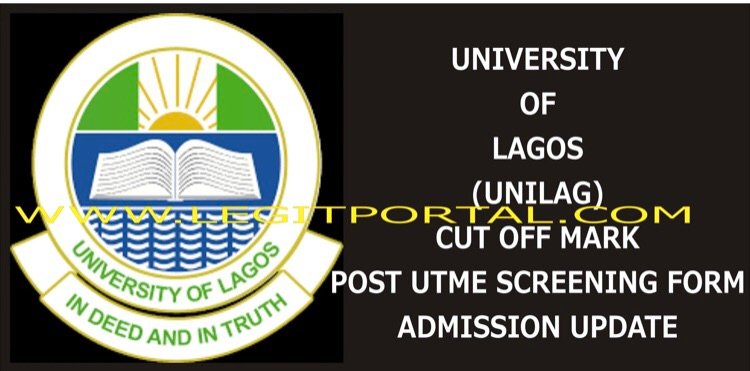
The University of Lagos (UNILAG) is one of Nigeria’s premier institutions, renowned for its academic excellence and vibrant campus life. Among its diverse programs, the Nursing Sciences department stands out, attracting aspiring nurses from across the nation. This article provides an in-depth look at the Nursing Sciences program at UNILAG, highlighting its curriculum, admission requirements, career opportunities, and why it’s a top choice for nursing students.
Overview of the Nursing Sciences Program
The Nursing Sciences program at UNILAG is designed to equip students with the essential knowledge and practical skills needed to excel in the nursing profession. The program emphasizes both theoretical foundations and clinical practice, ensuring that graduates are well-prepared to meet the healthcare needs of the community.
Curriculum Highlights
The curriculum covers a wide range of subjects, including:
- Anatomy and Physiology: Understanding the human body is crucial for effective nursing care.
- Microbiology and Pharmacology: These courses prepare students to handle infections and medications safely.
- Community Health Nursing: Focused on preventive care, this area addresses public health challenges.
- Nursing Ethics and Leadership: Essential for developing professional conduct and management skills.
Students also engage in clinical rotations, gaining hands-on experience in various healthcare settings.
Admission Requirements
To gain admission into the Nursing Sciences program at UNILAG, applicants must meet specific criteria:
- O’Level Requirements: Candidates must have at least five credit passes in relevant subjects, including Biology, Chemistry, Physics, Mathematics, and English.
- JAMB Cut-off Mark: A minimum score of 200 is typically required in the Joint Admissions and Matriculation Board (JAMB) examination.
- Post-UTME Screening: Applicants must participate in the Post-UTME screening organized by the university.
- Interview: Successful candidates may also undergo an interview to assess their suitability for the program.
Career Opportunities
Graduates of the Nursing Sciences program at UNILAG have a wealth of career opportunities available to them, including:
- Clinical Nurse: Providing patient care in hospitals and healthcare facilities.
- Nurse Educator: Teaching future nurses in academic institutions.
- Public Health Nurse: Working on community health initiatives and programs.
- Research Nurse: Engaging in clinical research to advance nursing practices.
With the increasing demand for healthcare professionals in Nigeria and beyond, nursing graduates are well-positioned for a fulfilling career.
Why Choose UNILAG for Nursing Sciences?
- Reputation: UNILAG is one of Nigeria’s leading universities, known for its quality education and research.
- Experienced Faculty: The Nursing Sciences department boasts a team of qualified and experienced instructors dedicated to student success.
- State-of-the-Art Facilities: The university provides modern facilities and resources that enhance learning and practical training.
- Networking Opportunities: Being part of a prestigious institution allows students to connect with industry leaders and potential employers.
Unilag Nursing Jamb Cut Off Mark
The cut-off mark for the Nursing Sciences program at the University of Lagos (UNILAG) is typically 200 in the JAMB examination.
Unilag Nursing Requirements
Meet O’Level Requirements: Ensure you have at least five credit passes in subjects like Biology, Chemistry, Physics, Mathematics, and English.
Register for JAMB: Take the Joint Admissions and Matriculation Board (JAMB) examination and aim for a minimum score of 200.
Post-UTME Screening: After passing JAMB, you must participate in UNILAG’s Post-UTME screening process, which may include an exam and/or an interview.
Application Form: Complete the university’s online application form during the admissions window, which is typically announced on their official website.
Wait for Admission List: After the screening process, check for the release of the admission list on the university’s website.
Unilag Nursing School Fees For 2024/2025
There’s no specific Unilag Nursing School fees at the moment because some schools have increased their tuition fees.
Although, the University of Lagos, nursing school fees are usually paid through the university’s designated payment portal in every session which is subjected to change . Here’s a general guide on how to know the current amount and possibly make your payment:
- Access the Portal: Go to the UNILAG official website and navigate to the students’ portal.
- Login: Use your registration details to log in. If you’re a new student, you may need to create an account.
- Select Fees Payment: Look for the section on fees payment and select the Nursing Sciences program.
- Payment Options: Choose your preferred payment method. Options often include bank transfer, card payment, or payment at designated banks.
- Print Payment Receipt: After completing the transaction, ensure you print the payment receipt for your records.
- Submit Documentation: Depending on the instructions, you may need to submit your payment receipt along with other registration documents.
How Many Years Is Nursing In Unilag
The Nursing Sciences program at Unilag is usually five years for undergraduate students. This includes both your classroom instruction and clinical training.
Course Structure for Nursing Sciences at Unilag
Year 1: Foundation Year
- Basic Sciences: Introduction to Biology, Chemistry, and Physics.
- Nursing Fundamentals: Introduction to nursing practice, ethics, and communication skills.
Year 2: Core Nursing Courses
- Anatomy and Physiology: Understanding the human body systems.
- Microbiology: Basics of infection control and microbiological principles.
- Pharmacology: Introduction to drug classifications and nursing implications.
Year 3: Advanced Nursing Practices
- Community Health Nursing: Focus on public health and preventive care.
- Mental Health Nursing: Understanding psychological health and illness.
- Medical-Surgical Nursing: Care of patients with various health conditions.
Year 4: Specialization and Clinical Practice
- Child Health Nursing: Care of infants and children.
- Geriatric Nursing: Focus on elderly care.
- Research Methods in Nursing: Basics of nursing research and evidence-based practice.
Year 5: Capstone and Clinical Experience
- Leadership and Management in Nursing: Preparing for roles in nursing management.
- Comprehensive Clinical Practice: Intensive clinical rotations in various specialties.
- Final Year Project: Research project on a nursing-related topic.
Additional Components
- Clinical Rotations: Throughout the program, students participate in clinical rotations to gain hands-on experience in hospitals and healthcare facilities.
- Workshops and Seminars: Regular workshops to enhance practical skills and knowledge in specialized area
Unilag Jamb Cut Off Marks For Other Courses

ACCOUNTANCY/ACCOUNTING – 200
ACTUARIAL SCIENCE – 200 ADULT
EDUCATION – 200 ARCHITECTURE – 200
BANKING AND FINANCE – 200
BIOCHEMISTRY – 200 BIOLOGY – 200
BIOMEDICAL ENGINEERING – 200
BOTANY – 200
BUILDING – 200
BUSINESS ADMINISTRATION – 200
BUSINESS EDUCATION – 200
CELL BIOLOGY & GENETICS – 200
CHEMICAL ENGINEERING – 200
CHEMISTRY – 200
CHINESE STUDIES – 200
CHRISTIAN RELIGIOUS STUDIES – 200
CIVIL ENGINEERING – 200
COMPUTER ENGINEERING – 200
COMPUTER SCIENCE – 200
CREATIVE ARTS – 200
DENTISTRY AND DENTAL SURGERY – 200
EARLY CHILDHOOD EDUCATION – 200
ECONOMICS – 200
EDUCATION AND BIOLOGY – 200
EDUCATION AND CHEMISTRY – 200
EDUCATION AND CHRISTIAN RELIGIOUS STUDIES – 200
EDUCATION AND ECONOMICS – 200
EDUCATION AND ENGLISH LANGUAGE – 200
EDUCATION AND FRENCH – 200
EDUCATION AND GEOGRAPHY – 200
EDUCATION AND HISTORY – 200
EDUCATION AND IGBO – 200
EDUCATION AND INTEGRATED SCIENCE – 200
EDUCATION AND ISLAMIC STUDIES – 200
EDUCATION AND MATHEMATICS – 200
EDUCATION AND PHYSICS – 200
EDUCATION AND YORUBA – 200
EDUCATIONAL ADMINISTRATION – 200
ELECTRICAL/ELECTRONICS ENGINEERING – 200
ENGLISH LANGUAGE – 200
ESTATE MANAGEMENT – 200
FINANCE – 200 FISHERIES – 200
FISHERIES MANAGEMENT – 200
FRENCH – 200
GEOGRAPHY – 200
GEOLOGY – 200
GEOPHYSICS – 200
GUIDANCE AND COUNSELLING – 200
HEALTH EDUCATION – 200
HISTORY AND STRATEGIC STUDIES – 200
HOME ECONOMICS AND EDUCATION – 200
HUMAN KINETICS – 200
IGBO – 200
INDUSTRIAL CHEMISTRY – 200
INDUSTRIAL MATHEMATICS – 200
INDUSTRIAL RELATIONS AND PERSONNEL MANAGEMENT – 200
INSURANCE – 200
ISLAMIC STUDIES – 200
LAW – 200
LINGUISTICS, IGBO AND OTHER AFRICAN LANGUAGES – 200
MARINE BIOLOGY – 200
MASS COMMUNICATION – 200
MATHEMATICS – 200
MECHANICAL ENGINEERING – 200
MEDICAL LABORATORY SCIENCE – 200
MEDICINE AND SURGERY – 200
METALLURGICAL AND MATERIAL ENGINEERING – 200
METEOROLOGY AND CLIMATE CHANGE – 200
MICROBIOLOGY – 200
NURSING/NURSING SCIENCE – 200
NURSING/NURSING SCIENCE – 200
PETROLEUM AND GAS ENGINEERING – 200
PHARMACOLOGY – 200
PHARMACY – 200
PHILOSOPHY – 200
PHYSICS – 200
PHYSIOLOGY – 200
PHYSIOTHERAPY – 200
POLITICAL SCIENCE – 200
PSYCHOLOGY – 200
QUANTITY SURVEYING – 200
RADIOGRAPHY – 200
RUSSIAN – 200
RUSSIAN WITH FRENCH/GERMAN – 200
SOCIAL WORK – 200 SOCIOLOGY – 200
STATISTICS – 200
SURVEYING AND GEOINFORMATICS – 200
SYSTEMS ENGINEERING – 200
TEACHER EDUCATION SCIENCE: – 200
TECHNICAL EDUCATION – 200
URBAN AND REGIONAL PLANNING – 200
YORUBA – 200
ZOOLOGY – 200
I love it
I pray I school in unilag for nursing science
Amen 🙏
I pray I was given admission in unilag to study nursing science.
I will really appreciate it
Is one of the uni i love most and i pray God will answer my prayers
I pray that I will gain admission in unilag to study nursing science and I know God will answer my prayers 🙏